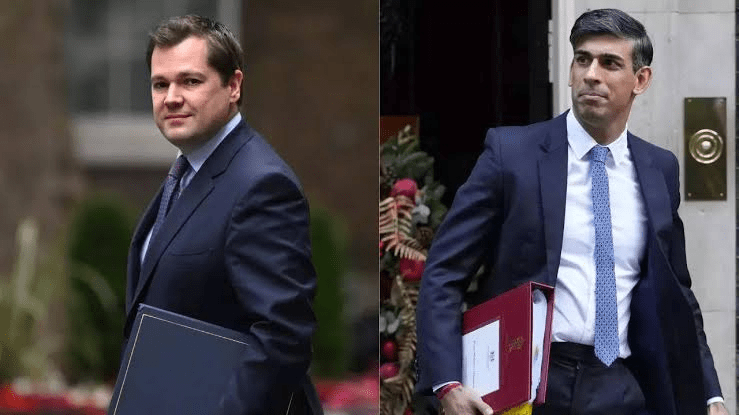
UK Home Office Ex-Minister Robert Jenrick Declares Tories Can Win Next General Election, Calls for Realism and Reform in Leadership Bid to Replace Rishi Sunak
Fiona Nanna, ForeMedia News
6 minutes read. Updated 4:19PM GMT Sat, 3August , 2024
In a bold declaration signaling a new direction for the Conservative Party, Robert Jenrick, a prominent contender in the race to replace Rishi Sunak as leader, has asserted that the Tories can indeed triumph in the upcoming general election. Speaking to a gathering of supporters in his Newark constituency, Jenrick emphasized the need for the party to address “hard truths” while rejecting defeatism in favor of a grounded, realistic approach.
Jenrick, who resigned from his position as Home Office Minister in December 2023, attributed the party’s recent electoral setbacks primarily to its failure to deliver on promises regarding immigration. This stance reflects a critical pivot from his earlier, more centrist position. His departure from the government, a protest against its handling of illegal immigration, marks a significant shift in his political trajectory.
Jenrick is one of six Conservatives vying for the leadership position. The other candidates include Kemi Badenoch, James Cleverly, Dame Priti Patel, Mel Stride, and Tom Tugendhat. To enter the race, each contender had to secure the backing of at least ten Conservative MPs. In September, Tory MPs will narrow the field from six to four, with the final candidates presenting their cases at the party conference in Birmingham. Following a series of ballots, the number will be further reduced to two, with party members casting the decisive vote by 31 October. The new leader will be announced on 2 November.
Jenrick, who has been seen as a close ally of Sunak and a centrist figure for most of his career, is now seeking support from the right wing of the party. His campaign launch was supported by figures such as Sir John Hayes, a prominent ally of Suella Braverman, who had been anticipated as a leadership contender but chose not to run due to lack of support from MPs.
Reflecting on the Conservative Party’s worst electoral defeat in history, Jenrick acknowledged the “mountain to climb” and urged a shift from defeatism. His tenure as MP for Newark saw a drastic reduction in his majority from 20,000 to under 4,000, highlighting the challenges he faces.
In his speech, Jenrick criticized previous Conservative governments for avoiding difficult decisions on the NHS, suggesting that their reluctance stemmed from fears of opposition attacks. He pledged to focus on building more homes to attract young voters and ensuring that the NHS serves patients effectively, rather than being treated as an untouchable institution.
Additionally, Jenrick criticized Labour’s approach, claiming that it would not effectively address the country’s issues. He proposed controversial measures, such as potentially leaving the European Court of Human Rights and capping net migration at levels determined by Parliament, ideally in the “tens of thousands.” He also expressed hopes of reinstating the Rwanda immigration scheme, though he acknowledged this would be a long-term goal.
Jenrick was introduced by Esther McVey, a former minister who praised his media skills and communication abilities. McVey expressed confidence in Jenrick’s potential to turn the Conservative Party’s fortunes around by appealing to the public without inciting provocation.

